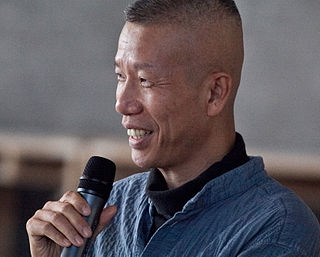A Quote by Rebecca MacKinnon
One thing is very clear from the chatter I see on Chinese blogs, and also from just what people in China tell me, is that Google is much more popular among China's Internet users than the United States.
Related Quotes
In the short term, it would not have made it possible to resume relations, because in the Chinese mind, the humiliation of China started with the annexation of Taiwan by Japan. If the United States had suddenly declared Taiwan as a separate state - for which we would have had no support among other nations - the consequences would have been giving up our relationship with China and committing ourselves to a long-term conflict with China.
I find Chinese debates about their political system domestically, but also about China's claims in the international system, to be among the most original and surprising and exciting of our time. The starting point is a system that none of us had anticipated, which I call Leninist capitalism, but also obviously because it is the most important emerging power. The question of China's relations with the United States in particular, and the rest of the world in general, is the question of war and peace in the 21st century.
My father has always been interested in discarding the past. He's never much liked China or the whole idea behind China or Chinese ways of thinking. He's always been much more attracted to American ways of thinking. He feels Americans are more open - they tell you what they think - and he's very much that way himself.
Moves toward sovereignty in Iraq stimulate pressures first for human rights among the bitterly repressed Shi'ite population but also toward some degree of autonomy. You can imagine a kind of a loose Shi'ite alliance in Iraq, Saudi Arabia, and Iran, controlling most of the world's oil and independent of the United States. And much worse, although Europe can be intimidated by the United States, China can't. It's one of the reasons, the main reasons, why China is considered a threat. We're back to the Mafia principle.
When China got into the WTO, that allowed it to sell into any other country within the WTO - not just the United States - at the lowest tariffs that country offered. And the other countries could sell into China at the lowest tariffs that China offered. The problem, right off the bat, was that China had much higher tariffs than everywhere else, so the U.S. and Europe in particular got the short end of that stick.
I would have said, before the World Trade Center events, that he would try to get a normal relationship with China - making clear to China what the limits are of what America can accept, but also showing understanding for some of Chinese necessities. I thought he was moving towards the position that I have more or less advocated.































